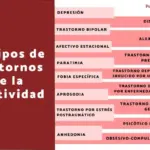The Alexithymia It is a neurological disorder that causes the inability to control and recognize one’s own emotions and, consequently, makes it impossible for the person who suffers from this condition to express themselves emotionally.
What is alexithymia?
Not all individuals who suffer from alexithymia have the same degree of affectation, since according to experts there are two types: primary alexithymiamore serious and consequence of a brain injury caused, for example, by multiple sclerosis or a stroke; and the secondary alexithymiadue to a emotional trauma suffered or poor emotional learning.
The symptoms of alexithymia can also appear in patients with Parkinson’s, during the early stages of the development of the disease, and in the majority of individuals who suffer from autism.
Statistics indicate that alexithymia affects 8% of men and 1.8% of women. Furthermore, 30% of people affected with psychological disorders and 85% of people who suffer from autism suffer from this disorder.
History and construct
Alexithymia was first named as a psychological construct in 1972 by Peter E. Sifneos, and was seen as a emotional awareness deficit. Studies indicate that this pathology has two dimensions: a cognitive one, when the person has problems identifying, interpreting and verbalizing feelings and emotions; and an affective dimension, when there are difficulties reacting, expressing, feeling and imagining emotionally (that is, having emotional experiences).
As already mentioned, alexithymia is associated with several psychological disorders, such as autism, depression or schizophrenia. Coexistence with other psychological pathologies complicates the patient’s recovery.
Symptoms
Regarding Alexithymia, it is important to know that does not appear in the DMS (Diagnostic and Statistical Manual of Mental Disorders). In any case, it can be defined by the following psychological, cognitive and behavioral characteristics:
Types of alexithymia
Researchers and experts in this pathology differentiate two types of alexithymia:
1. Primary alethymia
It has a biological origin since neurologists affirm that there is a neurological deficit that interferes in the communication between the limbic system (manages emotions) and the neocortex (our rational brain), or, there is a deficiency in the communication between the left hemisphere (in charge of language production) and law (regulates emotions).
This type of alexithymia may have a hereditary origin (with onset in childhood) or may be due to some neurological disease: multiple sclerosis, stroke, Parkinson’s, etc.
2. Secondary alethymia
This type of alexithymia arises due to some traumatic experience that an individual may have suffered both in childhood and in adulthood. Its symptoms can be explained as part of Post-Traumatic Stress Disorder (PTSD) in victims of kidnappings, rapes or war conflicts. But secondary alexithymia can also be caused by a depressive disorder, substance addiction, eating disorders (anorexia or bulimia), or poor emotional education.
Treatment and therapy
Starting treatment for a patient with alexithymia requires their own motivation or that of someone close to them. If there is no first request (from the subject or from a family member or friend), the treatment will hardly be carried out. Regarding this, Rarely is the patient the one who seeks help due to lack of knowledge or poor awareness of the problem.
Family support is necessary for this type of patient, since treatment will be effective if it works from three sources: the application of appropriate drugs (in the case of primary alexithymia), psychotherapy and a planned life strategy. In this last source, the support of family members is especially important.
Regarding psychotherapy, a distinction must be made between primary and secondary alexithymia, since therapies aimed at self-knowledge and emotional management are likely to only work with patients with secondary alexithymia.









